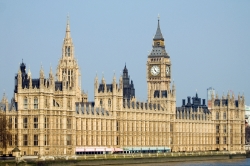 With the general election coming up in a few short days, many questions have arisen regarding how it will affect already proposed laws. While a good majority of those that were in question have since been passed (all of which will be discussed briefly below), there are still a few that have not been as successful. But what does that all mean in terms of the nearing election on June 8?
With the general election coming up in a few short days, many questions have arisen regarding how it will affect already proposed laws. While a good majority of those that were in question have since been passed (all of which will be discussed briefly below), there are still a few that have not been as successful. But what does that all mean in terms of the nearing election on June 8?
Successful bills
To start, when the election was called there were 10 bills that were under review of Parliament. Each was at a different stage and for a range of issues. Of those 10, eight were passed at the end of April. These include: The Finance (No.2) Bill, now the Finance Act, 2017; the Health Service Medical Supplies (Cost) Act, 2017; the Bus Services Act, 2017; the Digital Economy Act, 2017; the Higher Education and Research Act, 2017; the Technical and Further Education Act, 2017; the Neighbourhood Planning Act, 2017; and the Criminal Finance Act, 2017.
The Vehicle Technology and Aviation Bill
Unlike the previously discussed acts, the Vehicle Technology and Aviation Bill was not passed in the April 27 parliamentary decisions. In fact, it was decided that the bill would be carried over to the next session – which will not take place until after the general election.
The bill aims to achieve several things predominantly related to motor vehicle safety. First, it is designed to essentially prepare for the introduction and testing of automated, or self-driving, vehicles. It would also give a penalty to individuals who shine or direct a laser at a vehicle. And third, it aims to provide a fee structure for the courses that are offered in lieu of road traffic violation charges.
While it can easily be recognised that the components of this bill are potentially important for the future of motor vehicle usage, it is equally understandable why it could wait until after the election to be brought to the table. It is unlikely that automated cars will become an issue in the next few weeks, nor will the need to establish the fees associated with road violation courses. However, the issues touched upon within this bill are of obvious importance, given that each of the listed concerns will need to be addressed in the future. Perhaps the most pressing is the issue of flashing a laser in a driver’s eyes, as this can create immediate and long-term damage, or cause a motor vehicle accident.
The Prisons and Courts Bill
The Prisons and Courts Bill was another of the bills that was in the works at the time the general election was called. It, too, was not passed in the April 27 session, nor was it decided that it would be held off only until the next parliamentary session. Instead, it was shelved. This means it is put on hold until further notice but that there is no set time frame as to when any future proceedings will take place.
Focused on the prison system and changes to civil dispute resolutions, the Prisons and Courts Bill seeks to change the status quo, both in terms of social pressure and growing with technological advancement. When looking at the prison component, the bill touches on how they are inspected as well as on determining whether inmates should have access to mobile phones. Regarding the civil dispute changes, the bill aims to improve the efficiency of the system by introducing an online resolution platform. In other words, the Prisons and Courts Bill is attempting to reduce the amount of inefficiencies that are currently within the judicial system.
Like that of the Vehicle Technology and Aviation Bill, nothing within the Prisons and Courts Bill is overly pressing. However, it is interesting to note that this same bill was brought to Parliament around the time of the EU Referendum. But due to many concerns with the bill’s contents, it has taken quite some time for it to be passed even without the general election.
All in all, there aren’t a lot of factors influencing the remaining two big bills currently in limbo – at least where the general election is concerned. The majority of those that were in question have since been passed, and it seems likely that, with time, these remaining two will be as well, regardless of the election outcome.

